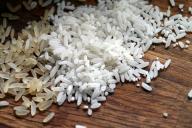Many summer residents prefer to use wood ash everywhere on their property.
This fertilizer is considered universal. There is an assumption that it cannot harm garden crops.
Agronomist Anastasia Kovrizhnykh reported that in fact wood ash is not as simple as it might seem at first glance.

According to the expert, this type of fertilizer is strictly contraindicated for some garden plants.
Hydrangea
This plant likes acidic soil that contains a lot of micronutrients.
Wood ash, in turn, deoxidizes the soil, making it not entirely suitable for hydrangea.
Rhododendron
Wood ash is not suitable for this bright flower, as it significantly reduces the pH level of the soil.
As a result, the plant may begin to get sick due to a “dropped” immunity.
Watermelon
Despite the fact that wood ash effectively fights aphids, watermelons will not like it as a fertilizer.
The culture may begin to develop incorrectly and eventually even perish.
Spinach
Spinach loves iron, phosphorus and B vitamins.
Wood ash reduces the concentration of these substances in the soil, which spinach will not “appreciate”.
Rhubarb
Rhubarb is best planted where the soil is fertile and slightly acidic.
Wood ash will add alkali to the soil, which will have a detrimental effect on the development of this plant.
Garden strawberries and potatoes
The above mentioned crops grow well only in those soils that contain acidic substances.
The alkaline environment that wood ash can create will not benefit garden strawberries and potatoes.
Earlier we talked about why people hang bottles of water on apple trees.









